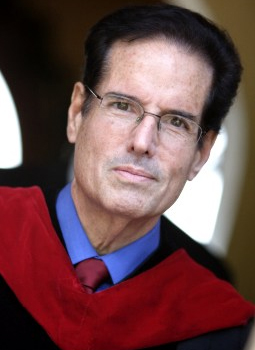The Early Church and War
by Dr. Robert A. Morey
The early church’s beliefs about war have become a source of heated debate. Pacifists have dogmatically stated that all the Christian leaders before Constantine rejected war as immoral and renounced the military as an occupation for any Christian. For example, Roland Bainton in Christian Attitudes Toward War and Peace stated, “All of the outstanding writers of the east and of the west repudiated participation in warfare for Christians.”1 This position has also been argued by Cadoux in The Early Christian Attitude to War.
On the other hand, Protestant church historians such as Philip Schaff, Harnack, McGiffert, Moffat, Lee, Frend, and archeologists such as Sir William Ramsey have also made a special study of the early church in this regard. They have come away convinced that the pacifists have overstated their case and ignored significant evidence that Christians were involved in the military from the apostolic period to Constantine.
Protestant historians have also noted that only two, or possibly three, Church Fathers were openly opposed to Christians participating in the military. Their grounds for rejecting military life is clearly the military’s involvement with idolatry. The military required an oath and certain garments of clothing, ceremonies and symbols which were idolatrous in nature.
Protestant historians such as Philip Schaff do not see any condemnation of war per se in the writings of the early Church Fathers. There is no indication that the Church Fathers rejected a nation’s right to go to war to protect its citizens. Harnack argued this position in his Militia Christi in 1905. The argument has been brought up to date by John Helgeland in Christians and the Roman Army, a.d. 173-337.2
Roman Catholic scholars have traditionally taken a position exactly opposite the pacifists. While pacifists claim all the early writers as pacifists, the Catholics do not see any of the early writers as pacifists. This is most ably argued by Ryan in “The Rejection of Military Service by the Early Church.”3
Methodology
Having surveyed the pacifist literature on the early church, it has become increasingly clear that the pacifists’ methodology in their historical research and presentation rests on several faulty assumptions.
First, they assume that the apostolic period began with pure pacifism and that the church remained pure until Constantine. During Constantine’s reign, the church “fell” from grace. The church suddenly abandoned its pacifism and pragmatically joined the military in order to support the first Christian emperor.
This argument includes several unwarranted assumptions and ignores some important facts. Since the New Testament never condemned war per se or the Christian’s participation in the military, the Christian Church did not begin with pacifism. The New Testament carried on the Old Testament ethic of the just use of force for personal or civil defense. The apostolic age began with Christians such as Cornelius remaining in the army.
For example, none of the earliest writers, such as Polycarp (a.d. 70-155), uttered one word against war or against Christians participating in the military. There is no evidence that the issue of war or the Christian’s participation in the army ever occurred to the Church Fathers. They assumed that believers would remain in whatever calling or occupation they were employed in when converted.
Second, the supposed “fall” of the church from pacifism to approval of war with Constantine is a convenient myth which has no historical justification whatsoever. If the early church was committed to pacifism in principle, if they viewed war as intrinsically immoral and in conflict with Christ’s teaching, to think that all of them would change their convictions simply because a Christian emperor came on the scene is quite unbelievable. We must remember that these are the same believers who went bravely to their deaths rather than deny what they believed. That they would change their pacifist beliefs and convictions for a Christian emperor is as plausible as believing that all modern-day pacifists will abandon their position once a Christian is elected President or Prime Minister. Just as modern pacifists would not change their conviction because of the arrival of Christian leadership, neither would the early pacifists have changed their convictions for the same reason.
The pacifists’ assumption that the church “fell” with Constantine actually militates against their own position. They teach that the church changed its beliefs because there was a change of circumstances. Christians like Tertullian, who were outspoken in their rejection of Christians participating in the military, objected not because they were against war in principle or against Christians being in the military in principle, but because of the idolatrous circumstancesconnected with military life. As soon as Constantine changed those idolatrous circumstances, there no longer remained any reason why Christians should hesitate to be in the army.
The second methodological problem with the pacifist position is that they take statements out of context and then misapply them. For example, Polycarp applied the Old and New Testament teaching against the use of violence for personal vengeance.4 Some have seized upon this as proof that Polycarp was a pacifist. But nowhere in the context of the passage does Polycarp bring up the subject of war, Christians in the military, or whether the state has the right to maintain an army or a police force. General statements such as “do not render evil for evil, cursing for cursing,” etc., should not be illegitimately applied to national defense when the author does not make the application himself. We must remember that in the Old Testament the prophets could preach against taking personal vengeance against one’s enemies and, at the same time, encourage the nation of Israel to destroy the enemies of God. There is no inherent contradiction between denying personal vengeance and approving participation in just wars.
The third problem with the pacifists’ methodology is that they try to prove more than the evidence they present can bear. For example, pacifists declare that governments should disarm and reject all warfare, even defensive wars. Therefore, they have to show that the early Christians believed that force was unjust in principle and that all governments should disarm and reject warfare.
When pacifists seek to prove their position, they frequently overstate their case, as they do with Origen. Origen did not want Christians to be in the military because of his spiritual and heavenly view of the Christian life. Yet he recorded this prayer of his for us:
For those fighting in a righteous cause, and for the King who reigns righteously, that whatsoever is opposed to those who act righteously be destroyed.5
The same can be said of Tertullian. While it is clear that he did not want Christians to participate in the army because they would become defiled with idolatry, nowhere did Tertullian condemn the state for having an army. Neither did he condemn nations for going to war. He declared:
Without ceasing, for all our emperors, we offer prayer. We pray for life prolonged; for security to the empire; for protection to the imperial house; for brave armies….6
If Origen or Tertullian were against the use of force in principle at any time, by anyone, including the state, they would hardly be found praying for those involved in righteous wars, that their soldiers would be brave in the destruction of their enemies.
When modern pacifists seek to prove their position by stating that the early church taught pure pacifism, they are overstating the case. Nowhere did the early Fathers teach that the use of force is intrinsically and morally wrong. The most the pacifists can come up with is an argument that some Christians did not believe they could, for conscience sake, because of idolatry, be involved in the military.
The Evidence
Church historians claiming that Christians were indeed involved in military life before Constantine have drawn their evidence from several different sources.
First, we have archeological evidence found on Christian tombstone inscriptions which identify the person buried as a Christian who was in the military. At least eight of these inscriptions are clearly pre-Constantine.7
If the church was totally pacifistic, condemning all participation in military life, it seems very unlikely that the relatives of a Christian would have gone to extra work to place his rank and legion on the tombstone. If being a soldier was a mark of shame and church discipline, we would not find a Christian’s rank and the name of his legion on the tombstone.
Also, the physical presence of such Christian tombstones is undeniable evidence that Christians were involved in the army before Constantine. Sir William Ramsey, in his book Luke the Physician, comments on an inscription for a Christian soldier from Lycaonia. He argues that in a.d. 303, “it is certain that the armies of the eastern empire were largely composed of Christians.”8
The second line of evidence is found in the list of military martyrs prior to Constantine. In the very first church history, Eusebius recorded the history of many Christian soldiers who died for the faith.9
Eusebius’s list of martyrs has been expanded by Musurillo in his book The Acts of the Christian Martyrs. While some of this material is clearly questionable, most of the martyrs in the military who died before Constantine have clear historical evidence behind them.
The third source of evidence is the history of the Christian Church in Armenia. Thaddeus, one of the seventy disciples whom Jesus sent out, was the first to preach the gospel in Armenia. Later the Apostle Bartholomew himself preached there.
Under the influence of Saint Gregory, Armenia became the first Christian nation in a.d. 303. When Maxminus tried to force the Armenians to renounce Christianity in a.d. 312, the Armenians took up arms and defended their faith and freedom. They defeated the Roman army.10
Throughout Armenian history, the Christian Church has never been pacifist. They have always defended their faith with the utmost courage and steadfastness.
The fourth source of evidence is the Thundering Legion (a.d. 173). Eusebius relates that soldiers in the Melitine Legion would kneel and pray before going into battle, as was the custom of Christians.11 In a particular battle with Germans, the legion was in dire thirst. Due to the prayers of the Christian soldiers, God sent rain to refresh them while he sent lightning to confuse their enemies. The legion went on to triumph against their enemies due to the influence of the Christian soldiers.
Most pacifists simply ignore this incident or dismiss it as legendary. The defense of the historicity of the Thundering Legion has been stated by Phillip Schaff,12 J. B. Lightfoot,13 and by Frend.14
Since pagan Roman historians recount the same incident, it seems unlikely that Eusebius invented the story of the Thundering Legion.
The fifth line of argument comes from the apocryphal gospels. If the Christian Church was thoroughly pacifist in its view of Christ and the Christian life, why do we find so many accounts in the apocryphal gospels of Jesus using force to punish evildoers? For example, in The Gospel of Thomas,15 Jesus is pictured as striking people dead.16
These stories are clearly fictitious; nevertheless, their presence in the popular literature of the early church reveals that believers did not view Jesus as a pacifist.
Or again, in the apocryphal Acts of Paul, written in a.d. 185, we read of Christian soldiers who were martyred for the faith while Paul was still living in Rome.17 Christians living in a.d. 185 did not have any problems with believers being in the army. Such apocryphal works as Acts of Paul were widely read and enjoyed. This would never have happened if they were all pacifists.
Our last source of evidence is drawn from the theological writings of the early Church Fathers.
The pacifists have not been able to present one sentence from St. Clement (a.d. 30-100), Mathetes (a.d. 130), Polycarp (a.d. 155), Ignatius (a.d. 30-107), Papias (a.d. 70-155), Justin Martyr (a.d. 110-165), the epistles of Barnabus (a.d. 100), Ireneas (a.d. 120-202), the Shepherd of Hermas (a.d. 160), Tatian (a.d. 110-172), Athenagoras (a.d. 177), or Clement of Alexandria (a.d. 153-217), which in their respective contexts discuss whether war is justifiable or whether Christians can be involved in war.
The Fathers said many things dealing with personal ethics. When these statements are examined in their context, it is clear that the Father was not discussing war or the Christian’s attitude toward the military. None of the above Fathers has anything to say about war per se.
When we study the early Fathers, we find they clearly taught that Christians could be found in all walks of life, including the military life.
Clement of Alexandria wrote:
Practice husbandry, we say, if you are a husbandman; but while you till the fields, know God. Sail the sea, you who are devoted to navigation, yet call the whilst on the heavenly pilot. Has (saving) knowledge taken hold of you while engaged in military service? Listen to the commander who orders what is right. (II:200)18
If early Christians were pacifists, they surely would have stuck out in a society which used force. But the early Christian Fathers boasted that believers were not different in any way from their neighbors. In the Mathetes’ letter to Diognetus, we find:
Christians are distinguished from other men neither by country, nor language, nor the customs which they observe. For they neither inhabit cities of their own, nor employ a peculiar form of speech, nor lead a life which is marked out by any singularity … inhabiting Greek as well as Barbarian cities, according as the lot of each of them has been determined and following the customs of the nations in respect of clothing, food, and the rest of their ordinary conduct. (I:26)
Since Clement assumed that Christians were in the army when he dealt with the Christian’s attitude toward various articles of clothing such as shoes, he commented:
For a man bare feet are quite in keeping, except when he is on military service. (II:267)
Before he became a heretic, Tertullian argued that Christians functioned in every level of Roman society, including the military:
We sail with you and fight with you, and till the ground with you; and in like manner we unite with you in your traffickings. (III:49)
When he was orthodox, Tertullian could pray for the armies of Rome to be brave in their protection of the empire (III:42).
Since the earliest Fathers never condemned Christians for being in the military, and they never rebuked the state for maintaining an army or a police force, the early church never condemned the use of force per se. It is no wonder that we cannot find a single instance in the early church where a Christian was refused membership or communion because he was a soldier. Nowhere do we find the teaching that Christians should desert their post.
Some view Tertullian’s and Origen’s writings as strong evidence of pacifism in the early church. Let’s take a closer look at these two men and what they wrote.
Tertullian (a.d. 160-215)
At the beginning of his ministry, Tertullian was quite orthodox in his theology. During this time he accepted the need for armies to fight righteous wars and recognized the presence of Christians in those armies (III:42, 49). After Tertullian joined the Montanist heretical movement with its ascetic view of life, Tertullian came to regard any contact with Rome as compromise with idolatry. The secular/sacred dichotomy can be found throughout Tertullian’s later works.
Fourteen years after writing the apology where he approves of Christians participating in all of life, including the military, Tertullian wrote De Corona Militis.
In De Corona Militis, Tertullian exhorted Christians to withdraw from political and military life because the clothing, wreaths, oaths, and symbols of office had their origin in idolatry. Christians were expected to withdraw from all “secular” occupations and to give themselves to spiritual works (III:93-101).
In his book on idolatry (III:73), Tertullian explains why he felt that a Christian could not be involved with Rome at any point. He preached that a Christian could not hold any public office whatsoever. It did not matter if he were the mayor of a small village or a soldier in the army. Any association with Rome was an association with Satan himself. Not once in this work or any other work does Tertullian state that war per se is evil or that governments do not have the right to maintain armies and to exercise force to protect its citizens. He is not attacking soldiers specifically. He is bitterly denouncing Christians who were involved with Rome at any point. Tertullian withdrew to a secluded monastery in Egypt and established one of the first pacifist communities.
Origen (a.d. 185-254)
Origen represented the earliest attempt to create a blend between Christianity and pagan philosophy. His many unorthodox views, such as the preexistence of the soul, led to his subsequent condemnation as a heretic by church councils.
In his reply to Celsus’ demand that Christians should fight for the emperor regardless of what idolatry may be involved, Origen answered that Christians do in fact fight for the emperor but on a heavenly and spiritual plane (IV:667, 668).
While Christians could pray and fight spiritually for the empire,
To those enemies of our faith who require us to bear arms for the Commonwealth, and to slay men, we cannot. (IV:668)
Origen believed that Christians were on a spiritual plane and should not become involved in such secular activities as war. He believed, nevertheless, that some wars were perfectly just and that it was the duty of Christians to pray that enemies of righteousness would be destroyed in such a war (IV:268). It is clear from his statements, that Origen was not a pacifist in principle because he did not believe that the use of force per se was evil.
As to Hippolytus, who said that Christians should not bear arms (V:256, Canon 14; 257, Canon 14), he did not explain why Christians should avoid military service. When he picks up the subject in his apostolic tradition (16; 10-22), he deals with it in the context of idolatry and immorality. We are not explicitly told why he felt Christians should not be involved in the military.
Cyprian made one reference that has been seized upon as proof he was a pacifist. He stated:
The hand spotted with the sword and blood should not receive communion. (V:488)
When we turn to the context for his statement concerning hands spotted with blood, we find that he was dealing with “adultery, fraud, and manslaughter.” He was discussing murder, not military service per se, or killing someone in self-defense or in a war situation.
The Councils of Arles (a.d. 314) and Nice (a.d. 325) not only produced some of the great creeds of the church such as the Nicean Creed, but they both upheld the Christian’s right to be involved in the military. They saw no controversy with believers being soldiers except when this necessarily involved idolatrous oaths or ceremonies.
St. Basil stated in a.d. 370:
Our fathers did not think that killing in war was murder. (XIV:605)
While he did not see any biblical reason or apostolic tradition for cautioning taking communion after killing in a war situation, he went on to say that perhaps it would be good for a short period to avoid communion after killing in war.
Conclusion
We have surveyed the archeological and literary evidence concerning whether Christians participated in the military before Constantine, whether or not they condemned war in principle and the state’s use of force in particular. The evidence demonstrates that Christians entered all areas of life from the beginning of the New Testament period. They did this because they viewed all areas of life as under the lordship of Christ. Christians could be found in every honorable profession from the military to that of sailors or farmers.
Only after the pagan philosophic idea of dividing life into a secular and sacred dichotomy invaded the Christian Church did we find a few writers who exhorted Christians to abandon all “secular” occupations. They felt Christians should avoid political and military life because of possible association with idolatrous practices.
Did any early Church Fathers set forth that it is intrinsically wrong for nations to use force to protect its citizens? When we turn to the evidence to see if any took this position, we find nothing. Not once is Rome called upon to disarm. Not once did Church Fathers urge nonresistance as a national policy.
Because of the idolatrous elements in the Roman army, some early Christians had a great struggle serving in the military. But once Constantine removed those idolatrous elements from military life, we do not find any other problems for Christians who desired to enter political or military professions.
This is an excerpt of When is it Right to Fight? by Robert Morey






































